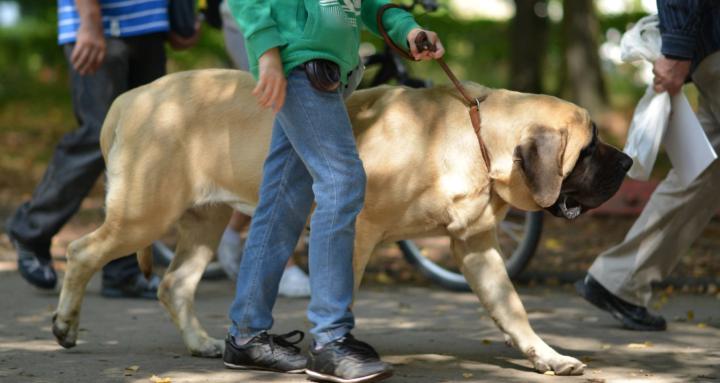Mar '25 (edited) • Articles
Mastiff Owner’s Guide: 10 Essential Tips for Raising a Happy & Well-Behaved Gentle Giant 🐾🏡
Embarking on the journey of raising a Mastiff, especially a Cane Corso and English Mastiff mix, is both rewarding and challenging. These gentle giants are known for their loyalty, strength, and affectionate nature. To ensure a harmonious relationship and a well-adjusted companion, consider the following essential tips:
1. Initiate Crate Training Early
Crate training provides your Mastiff with a secure space, aiding in reducing anxiety and preventing destructive behaviors. One experienced owner emphasizes the importance of this practice:Chewy
"Crate train her. Both of my mastiffs have been huge lap dogs and very attached. I found when I left them alone and free the anxiety led to destruction... the kennel is a cozy, comfortable place where they can relax."
Introduce the crate as a positive environment, using treats and praise to encourage your pup to associate it with comfort and safety. Avoid using the crate as a form of punishment to ensure it remains a haven for your dog.
2. Establish a Consistent Routine
Mastiffs thrive on routine, which helps them understand expectations and reduces stress. Implement regular schedules for feeding, exercise, and rest. Consistency in daily activities fosters a sense of security and aids in training efforts.
3. Prioritize Socialization
Early and positive exposure to various environments, people, and other animals is crucial for a well-adjusted Mastiff. Proper socialization helps prevent fearfulness and aggression, promoting confidence in diverse situations.
4. Implement Gentle Training Techniques
Mastiffs are emotionally sensitive and respond best to positive reinforcement methods. Harsh training techniques can lead to fear and hinder learning. Focus on rewarding desired behaviors with treats, praise, and affection to encourage repetition of those actions.
5. Monitor Growth and Exercise Appropriately
Mastiffs grow rapidly, and their joints are susceptible to injury during development. Avoid excessive running or jumping, especially on hard surfaces, during their first two years. Provide moderate exercise to maintain health without overexertion.
6. Maintain a Healthy Diet
Proper nutrition is vital for your Mastiff's growth and overall health. Consult with your veterinarian to determine the best diet plan, ensuring it meets the specific needs of large breeds. Monitor their weight to prevent obesity, which can strain joints and lead to other health issues.
7. Regular Veterinary Check-ups
Routine veterinary visits are essential to monitor your Mastiff's health, administer vaccinations, and address any concerns promptly. Early detection of potential health issues can lead to more effective treatments and a longer, healthier life.
8. Provide Mental Stimulation
Mastiffs are intelligent dogs that require mental engagement to prevent boredom. Incorporate puzzle toys, obedience training, and interactive play to keep their minds active and reduce the likelihood of destructive behaviors.
9. Create a Safe Home Environment
Puppy-proof your home by removing hazards and securing valuable items. Given their size and curiosity, Mastiffs can inadvertently cause damage or injure themselves. Ensure electrical cords are out of reach, toxic substances are secured, and provide appropriate chew toys to satisfy their natural chewing instincts.
10. Exercise Patience and Consistency
Raising a Mastiff requires patience and unwavering consistency. Set clear boundaries and reinforce them regularly. Understand that training and socialization are ongoing processes that require time and dedication.
Incorporating these practices will help you nurture a well-behaved and content Mastiff. Remember, each dog is unique, so tailor your approach to suit your individual companion's personality and needs. With love, patience, and proper guidance, your Mastiff will grow into a loyal and cherished member of your family.
0
0 comments

skool.com/mastiffs-are-the-best-3540
Join the EXCLUSIVE Mastiff community! 🐾 Mostly just a bunch of people who LOVE their mastiff & think their life is better off with them around.
Powered by
